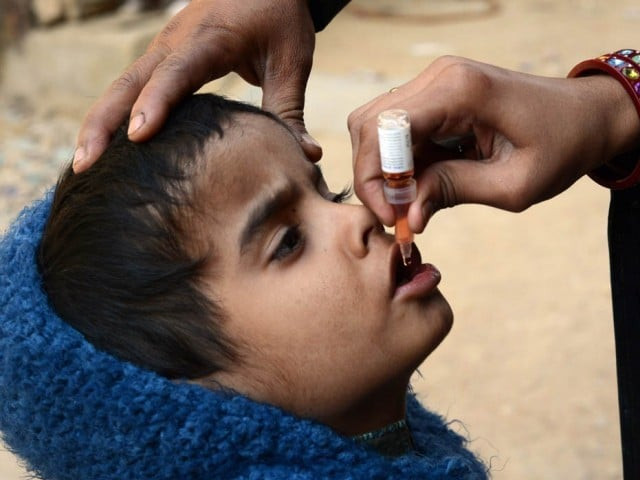Polio in Balochistan
It is estimated by Unicef that at least 21,000 children are missed in every campaign in the province

PHOTO: AFP
The BEOC is calling for “concrete steps and greater commitment” to eradicate the disease. A fresh campaign is due to start on May 28 targeting 1.2 million children in eight districts. It is estimated by Unicef that at least 21,000 children are missed in every campaign in the province, and these children provide an unvaccinated pool that represents not only a danger to themselves but magnifies the risk of infection to others. Balochistan is to launch a programme of female community health volunteers to improve anti-polio coverage in high-risk areas. Laudable as this may be, it must be remembered that polio teams, even when given nominal protection by police and paramilitary forces, are the frequent targets of terrorists who have vowed to halt the campaign at all costs. The numbers of women who have laid down their lives for a pittance — when the responsible authority bothers to pay them at all — is now in the hundreds and rising. Recruiting unpaid volunteers may not in that event be the most viable strategy. Recruit, train, pay, protect — that is the way forward. Cheap solutions are never the answer.
Published in The Express Tribune, May 27th, 2015.
Like Opinion & Editorial on Facebook, follow @ETOpEd on Twitter to receive all updates on all our daily pieces.















COMMENTS
Comments are moderated and generally will be posted if they are on-topic and not abusive.
For more information, please see our Comments FAQ